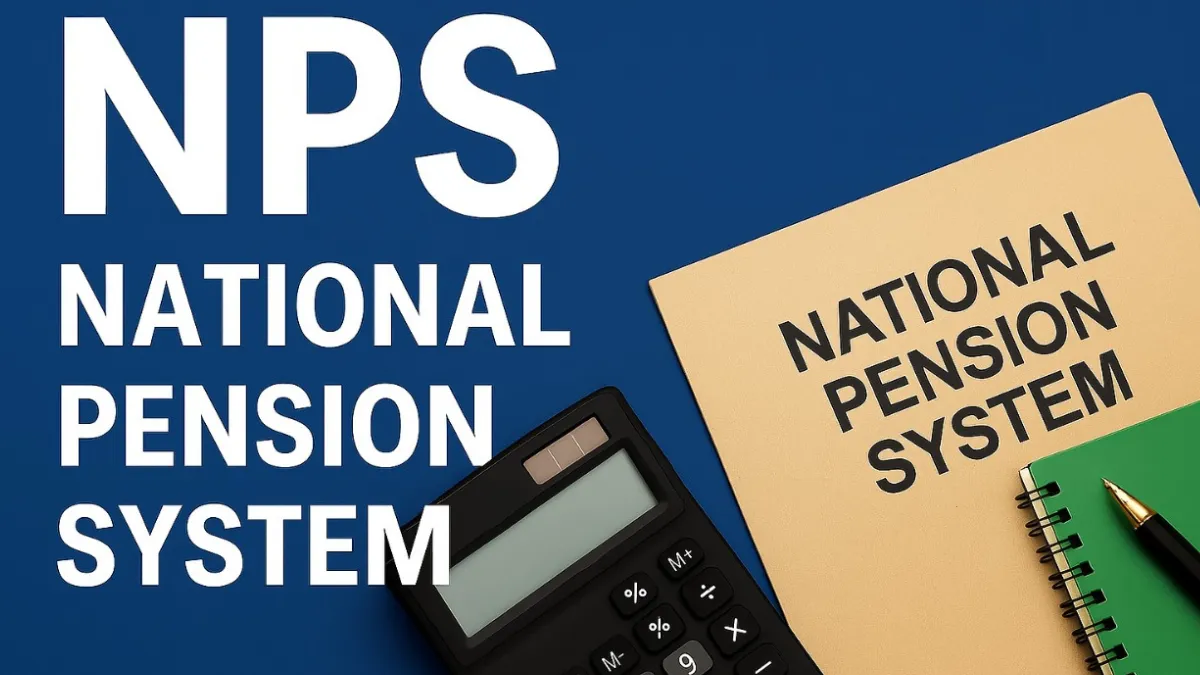NPS Gratuity Update – In a landmark move benefiting lakhs of central government employees, the government has officially made gratuity a permanent benefit under the National Pension System (NPS). This update ensures that central government employees under the NPS regime will now receive gratuity benefits in the same manner as those under the old pension scheme. This decision, welcomed widely by employees and unions alike, brings greater social security, stability, and retirement assurance to individuals who have been part of the NPS since its inception in 2004.
Let’s understand what this update means, who it affects, and how it strengthens the overall pension framework for government workers.
What is NPS and How Gratuity Was Handled Before?
The NPS Gratuity Update National Pension System (NPS) is a defined contribution-based pension system introduced by the Government of India for its employees (excluding armed forces) who joined service on or after January 1, 2004. It was later extended to all Indian citizens.
Unlike the Old Pension Scheme (OPS), NPS does not provide a guaranteed pension but is market-linked, where employees and the government both contribute towards a pension corpus. However, there was always ambiguity around gratuity entitlement for NPS subscribers.
Initially, gratuity was not a guaranteed benefit under NPS, and employees retiring under this scheme could not be certain whether they would receive the lump sum gratuity amount that OPS employees did.
The Recent Update: Gratuity Now Permanent
With the recent government notification, it is now confirmed that:
- Gratuity is a permanent retirement benefit under NPS.
- Central government employees covered under NPS will receive gratuity benefits up to ₹20 lakhs, similar to OPS employees.
- The benefit will be applicable on retirement, resignation after 5 years of service, death, or permanent disablement, as per the Payment of Gratuity Act, 1972.
This change not only clarifies the policy but ensures financial support at retirement or in unforeseen circumstances, offering a safety net to employees.
Who Will Benefit?
This gratuity update will benefit the following groups:
- All central government employees who joined service on or after January 1, 2004, and are covered under NPS.
- Employees who serve a minimum of 5 years in government service.
- In case of death or permanent disability, gratuity is payable irrespective of years of service.
- It also covers employees retiring voluntarily or on superannuation.
Financial Impact and Planning
Gratuity is a tax-free lump sum amount (up to ₹20 lakh) given by the employer as a gesture of appreciation for long service. The inclusion of gratuity in NPS means:
- More predictable retirement planning for NPS subscribers.
- Helps in building a stronger financial base at retirement, especially when NPS returns may fluctuate due to market conditions.
- Employees can now plan their annuity purchase and post-retirement investments better.
Legal & Administrative Framework
The gratuity benefit under NPS is now formalized through administrative circulars and will be implemented by relevant departments:
- PAOs (Pay & Accounts Offices) and DDOs (Drawing & Disbursing Officers) will now process gratuity claims for NPS employees.
- Employees will submit Form-5 and relevant documents before retirement to claim gratuity.
- Amount will be calculated based on last drawn salary × years of service × 15/26, subject to the ₹20 lakh cap.
This alignment with the Payment of Gratuity Act standardizes benefits across the board, bringing clarity to HR and financial departments.
Employee Reactions & Union Response
Various employee associations, including NCCPA and Confederation of Central Government Employees, have welcomed the move. Many had been demanding parity between NPS and OPS for years. While full pension parity still remains a topic of debate, this gratuity inclusion is a significant step forward.
It reflects the government’s acknowledgment of long-standing concerns raised by employees about retirement uncertainty under NPS.
Future Implications
This gratuity update could pave the way for:
- Further reforms in NPS, including better annuity options and partial pension guarantees.
- State governments may follow the central government’s lead in implementing similar gratuity benefits for their NPS-covered employees.
- Encouragement for private employers to also offer gratuity to NPS subscribers in the private sector.
Conclusion
The NPS Gratuity Update for central government employees marks a crucial policy shift that enhances the attractiveness and security of the National Pension System. With gratuity now made permanent under NPS, the financial future of lakhs of government workers becomes more secure.
This update narrows the gap between NPS and the old pension scheme and affirms the government’s commitment to providing fair retirement benefits. It’s a welcome relief and a step in the right direction for public sector professionals planning their post-retirement life.








